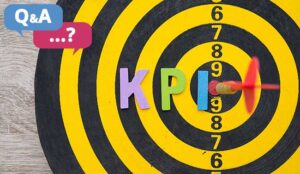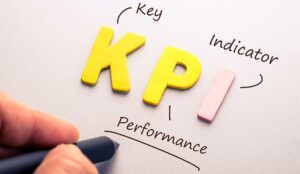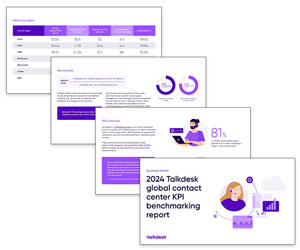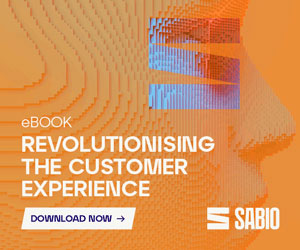Applying for jobs can be challenging, especially when answering questions about experience with targets and KPIs.
Michelle reached out to our community of professionals for advice on tackling this interview question:
“I am applying for a job, and one of the questions they are asking is: Do you have experience working towards targets and KPIs?
I have not worked in a call centre before, but I have experience in retail as a customer service assistant. How should I answer this?”
We posed this question to our readers, and here’s what they had to say:
Recognise Targets and KPIs in Your Role
When considering experience with targets and KPIs, it’s important to reflect on the performance metrics already present in your role.
For example, in retail, targets might include till accuracy, customer satisfaction scores (such as mystery shopping results), sales revenue, or store card sign-ups. These all demonstrate experience in working towards measurable goals.
Even in roles outside of sales, performance expectations exist. A waitress, for instance, may have targets for upselling desserts and cocktails or encouraging customer reviews on platforms like TripAdvisor.
Additionally, don’t get too caught up in the term ‘KPI.’ Similar concepts can be referred to as SLAs, KPAs, or EBRs, depending on the industry. Understanding these variations can help frame your experience effectively.
Contributed by: Bill O’Reilly and Amy
3 Approaches to Answering KPI Interview Questions
When responding to a question about targets and KPIs, there are three main ways you could structure your answer: focusing on the details, the process, or the improvements made.
Example 1: Focus on the Detail
A strong response should highlight the exact targets set in your previous role and how you met them. This could include sales figures, accuracy goals, or customer satisfaction metrics.
Employers want to see not only that you understand targets and KPIs but also that you actively worked towards them with measurable success.
Example Answer
“Yes, in my previous role at [COMPANY NAME], I consistently worked towards specific targets and KPIs. For instance, one of our key performance indicators was to achieve a daily sales target of [AMOUNT].
I achieved this by understanding customer needs, recommending appropriate products, and providing excellent service.
We also had goals for [INSERT GOAL – e.g. inventory]. We aimed to [INSERT TARGET DETAILS – e.g. reduce mistakes in stock levels by X% every X months].
I helped by [INSERT ACTIONS – e.g. record keeping and stock checking], which led to a [INSERT OUTCOME DETAILS – e.g. X% improvement in accuracy over the year. ].”
Example 2: Focus on the Process
A strong response should explain how you approached your targets systematically. This could involve time management strategies, task prioritisation, or process improvements that helped you stay on track and perform well. Emphasising your methods shows that you are proactive and adaptable in meeting key objectives.
Example Answer
“Yes, I have experience working towards targets and KPIs in the [PREVIOUS SECTOR]. In my previous position, I was responsible for [INSERT RESPONSIBILITIES – e.g. meeting daily and monthly sales targets and inventory goals].
To consistently meet these KPIs, I developed a systematic approach that involved [INSERT DETAILS – e.g. prioritising high-impact tasks, maintaining an organised inventory, and using effective sales techniques]. This process helped me not only meet but often exceed my targets.”
Example 3: Focus on the Improvement
Another effective way is showcasing how you identified opportunities for improvement, took action, and delivered measurable results.
This could involve refining workflows, implementing new strategies, or collaborating with a team to enhance performance. By emphasising your impact, you demonstrate a results-oriented mindset.
Example Answer
“Absolutely, in my last role at [COMPANY NAME], our team was driven by clear targets and KPIs such as [INSERT KPIs – e.g. daily sales goals, inventory turnover rates, and stock accuracy].
I played a key role in a project aimed at [INSERT PROJECT DETAILS – e.g. improving our inventory management].
By [INSERT PROJECT ACTIONS – e.g. analysing stock data and identifying common discrepancies], we developed new procedures and updated our protocols, which led to a [INSERT PROJECT OUTCOME – e.g. X% improvement in inventory accuracy within X months].”
Contributed by: Rob
Helpful Resources to Help Prepare For a Call Centre Job
If you’re getting ready for a call centre interview, these resources can help you feel confident and prepared.
- Top 50 Customer Service Interview Questions – with Answers – Covers common call centre interview questions and tips on crafting strong responses.
- Top 10 Customer Service Team Leader Interview Questions – For those interested in leadership roles or gaining a deeper understanding of call centre expectations.
- An Introduction to Contact Centre KPIs and KPAs – To better understand the key performance indicators (KPI’s) used in call centres.
Contributed by: Jonty, Rosie and Pam
This article was made possible due to the great community of experts we have at Call Centre Helper, to get involved just join our LinkedIn Community and and if you aren’t already make sure you are following us on LinkedIn to see our latest content.
For more articles on preparing for an interview in a call centre, you should read these articles next:
- Customer Service Interview Questions
- Interview Dos and Don’ts
- 4 Classic Customer Service Interview Questions – With Answers
Author: Jonty Pearce
Reviewed by: Hannah Swankie
Published On: 12th Apr 2022 - Last modified: 11th Feb 2025
Read more about - Call Centre Questions, Interview, Key Performance Indicators (KPIs)




































